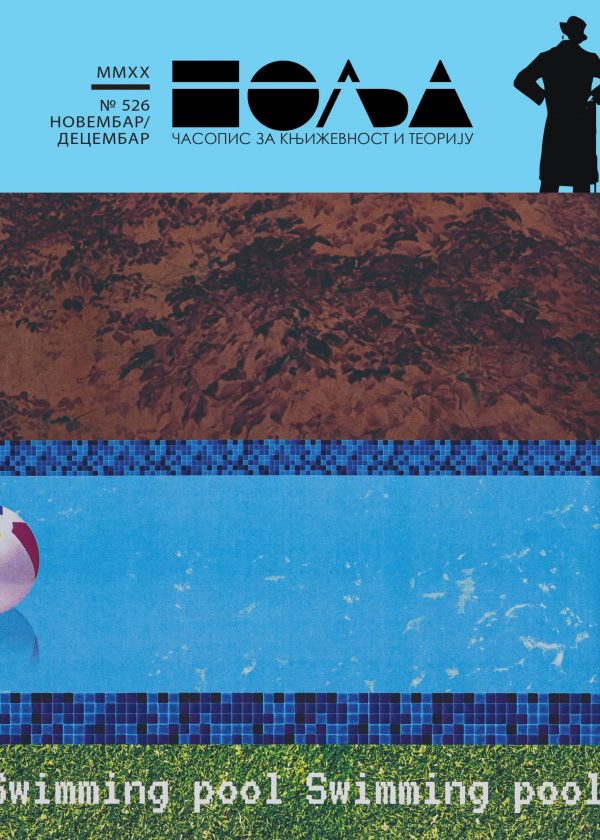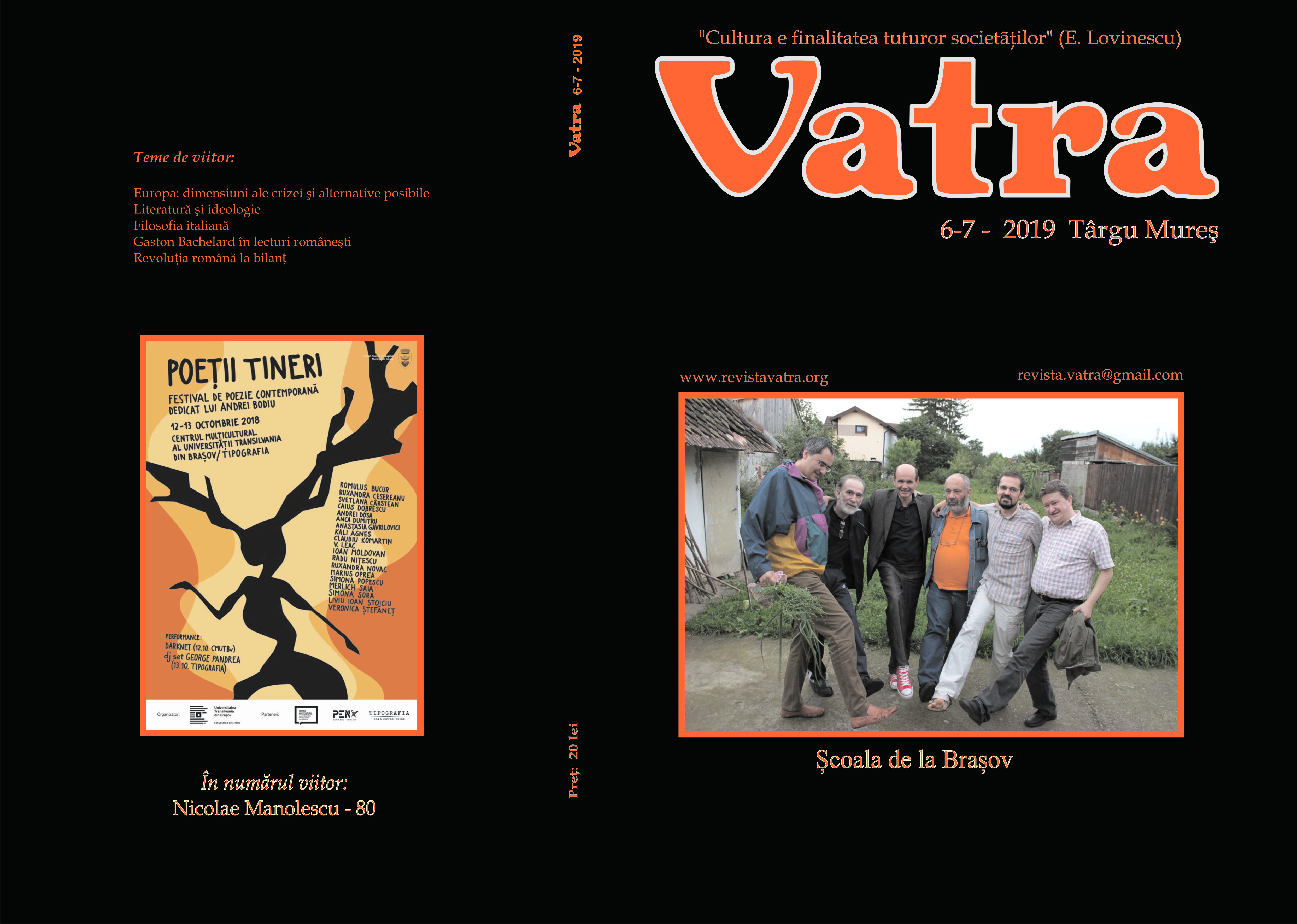
We kindly inform you that, as long as the subject affiliation of our 300.000+ articles is in progress, you might get unsufficient or no results on your third level or second level search. In this case, please broaden your search criteria.

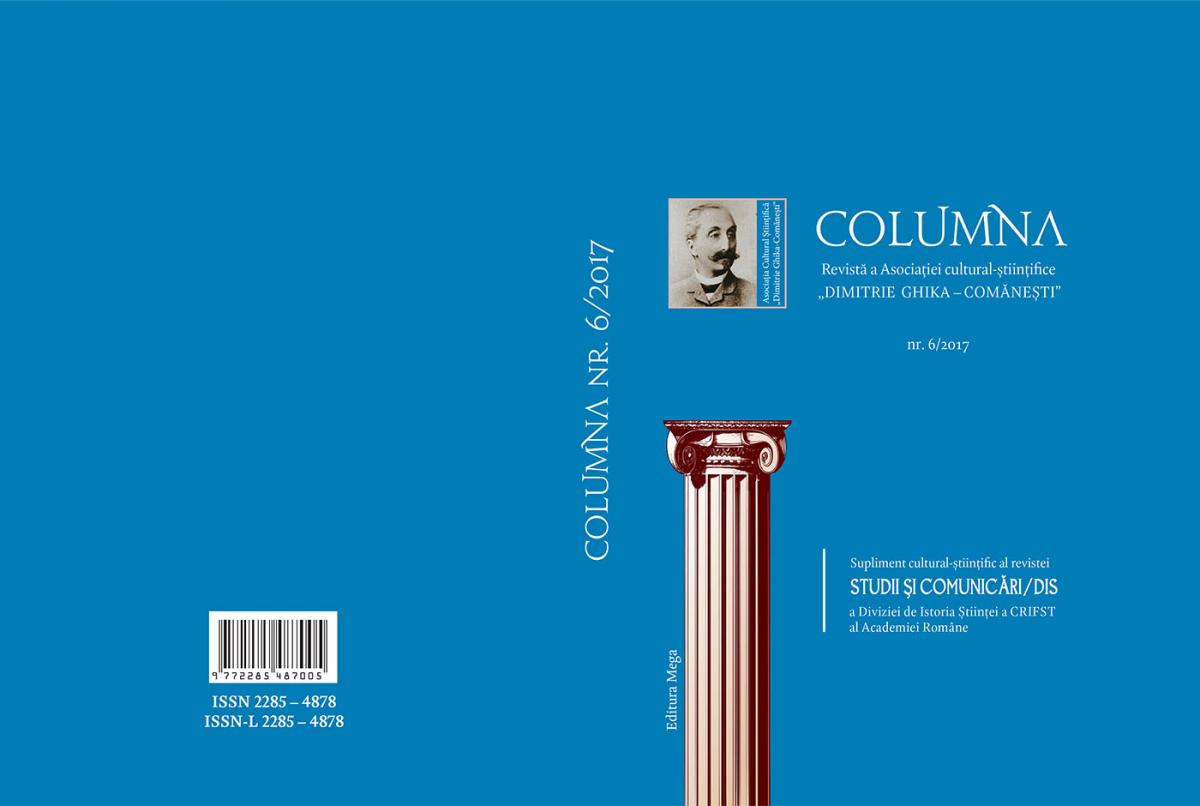
This study presents the analysis of compositional elements and language of the poem „I do not crush the corolla of wonders of the world” by Lucian Blaga. This poem is based on a philosophical theme – knowledge. „The corolla of wonders” is the universal balance, the measure of beauty, the mystery of life and of death. The following metaphors flowers, eyes, lips, graves capture the poetic creation themes – life/ transitoriness, knowledge, love and death. These metaphors are immagined as the petals of corolla which are intended to shelter the mystery.
More...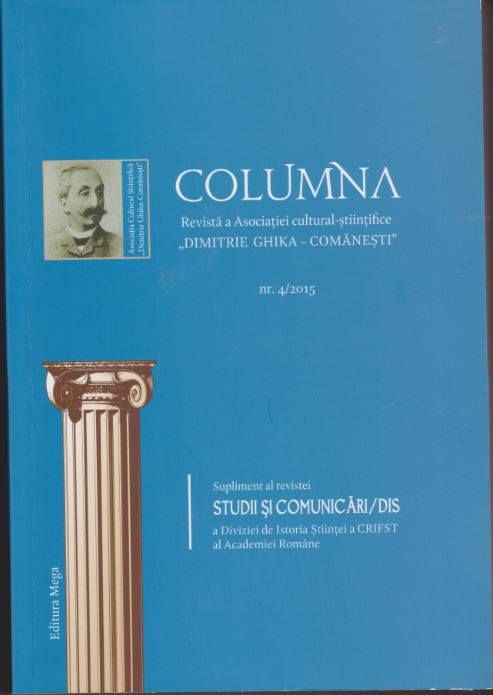
This work is a review of the books written by three local authors: Marcel Cepoi, Eugenia Boteanu și Ion Lupu. These authors were chosen between the many others local writers based on a subjective opinion. Marcel Cepoi has a native talent for poetry and he has published two poetry books since now. His poetry is optimistic and shares a love for joy and nature opposed to the existential anxiety. Eugenia Boteanu, known more as a talented painter, has published four poetry books difficult to be classified as genre and form. Her lyrics are based on memories confronted with present impressions, introspection and re-emergences. Ion Lupu, a great lover of the Romanian history, has written 12 historical novels. Most of them are the saga of a Moldavian family and the community it belongs to throughout Moldavian tumultuous history.
More...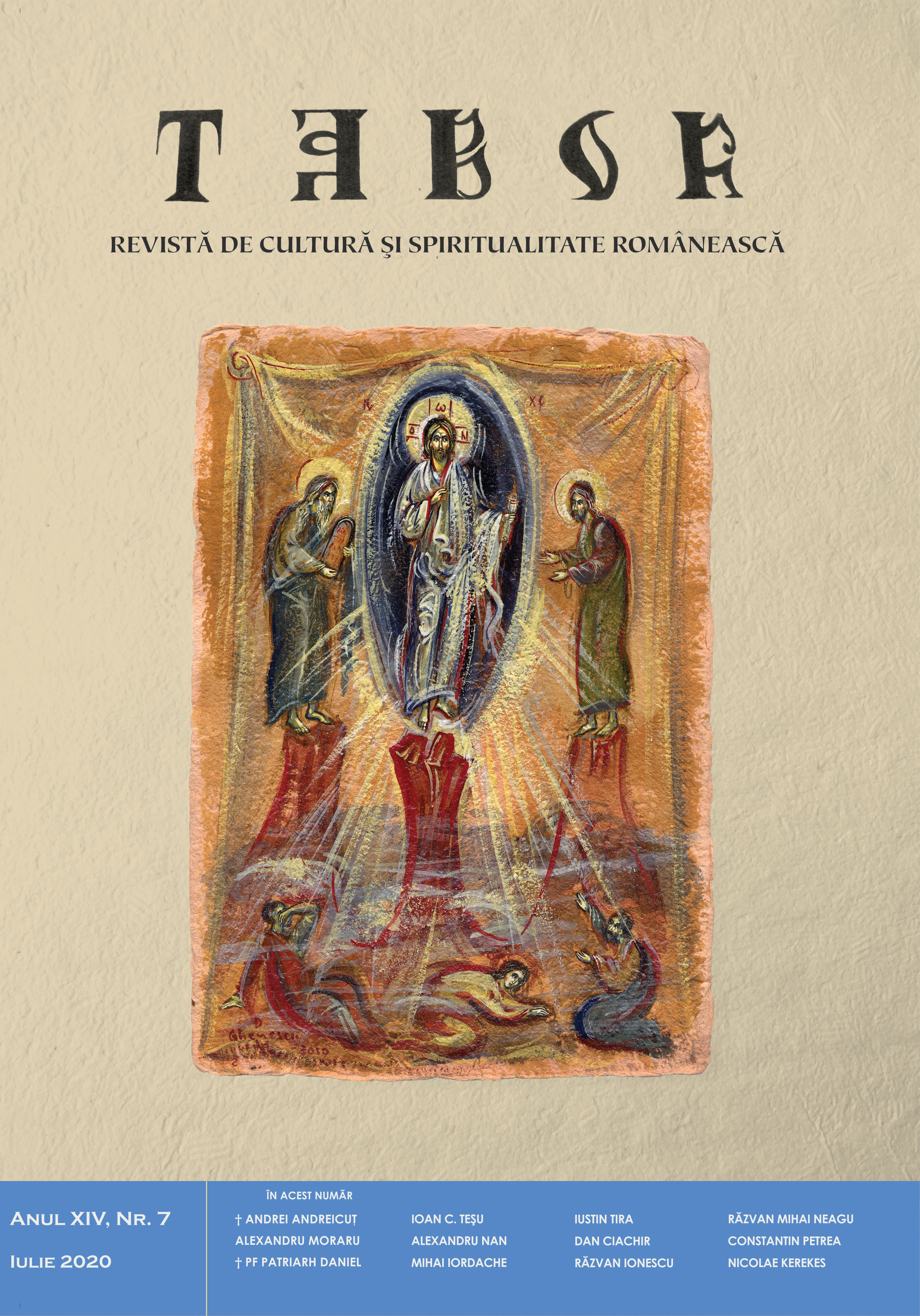
The article evokes the spiritual profile of King Michael of Romania. He had been crowned with the Steel Crown and anointed king by Patriarch Nicodim Munteanu in the patriarchal cathedral in Bucharest, immediately after his father’s abdication, on September 6, 1940. Out of a noble modesty that clothed his being throughout his life, he never used his right to enter the altar through the royal doors and take the Holy Communion by himself from the altar table. He played an important role in the armed resurrection of August 23, 1944, a historical event confiscated by the communists and presented to the Romanians, on this note, through several plays. One – and that is Titus Popovici’s play “Passacaglia” – is mentioned in the article. After 1989, King Michael made several historical visits to Romania. In 2011 he delivered a memorable speech in the Romanian Parliament, saying among other things: “I do not see today’s Romania as a legacy from our parents, but as a country that we borrowed from our children.” Only when the King left, the country and the nation who lost him were finally grand.
More...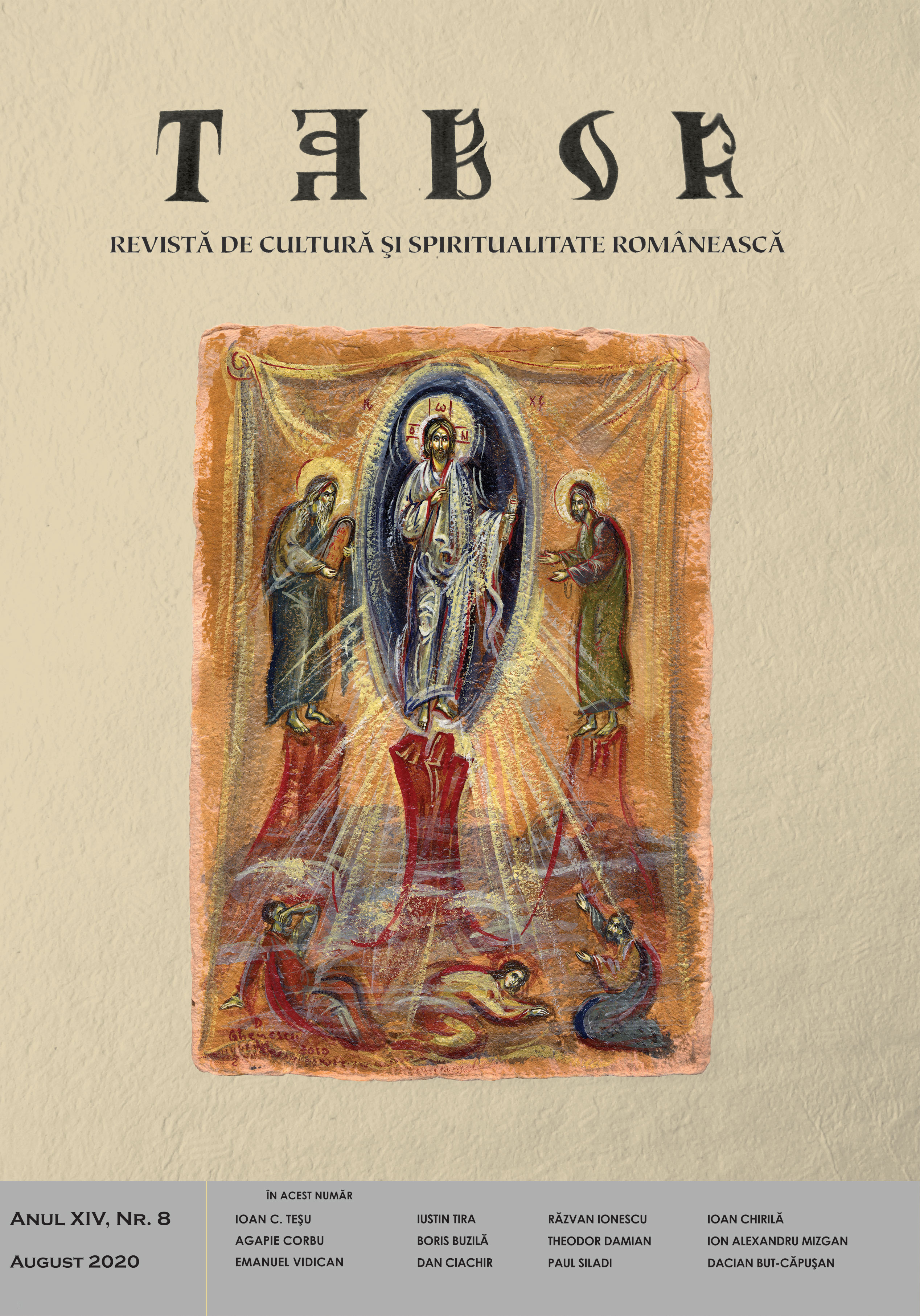
These diary pages evoke memories and feelings that the author experienced in Bucarest in january- march 2007. New buildings in Bucarest, the 60’s in Italy, romanian memorialists, Virgil Candea’s death, Argetoianu’s writings, all these are reflection themes for the author of these pages.
More...
This article evokes the great Romanian actor Dina Cocea’s personality. She starred as Elisabeta in Schiller’s Mary Stuart or as Kabanova in Ostrovsky’s Storm, or as Hélène in Eduard Bourdet’s The Difficult Times as her debut in 1934 at the Michodière Theater in Paris, but she was simply formidable as the Mother in Luigi Pirandello’s Life that I gave you. In her attitudes, Dina Cocea had, a certain almost undistinguishable genuine maternal spirit, which she had discreetly and deliberately camouflaged in favor of her career, but which she had fully cultivated towards her young apprentices. When two of her disciples, Gheorghe Dinică and Marin Moraru, two huge “sacred monsters” of the Romanian theater, were caming to her birthday, everybody could see from afar their overflowing love and joy of being close to the one who had guided their first steps into a cruel profession, in which they had richly succeeded. She had lived through an era. An era when history had begun to turn upside down and her family had played an active role in this carousel. She enjoyed the scent of a Parisian classy childhood and adolescence – spent in the shadow of her aunt, the actress Alice Cocea in vogue at the time – as well as prestigious theater studies; a street was named after her grandfather since the communist era, a street where the Little Theatre is located, respectively Constantin Mille – “the terrible child of the Contemporary” as George Călinescu once called him, but also the director of the newspaper Adevărul between 1898 and 1920 – and from her father, N.D. Cocea, she had inherited her leftism.
More...
This article is a hermeneutic essay, on a theological note, to the film Mission (1986), one of the cinematic masterpieces of the ninth decade of the last century. The story takes place in the middle of the 18th century, in the border area between Argentina, Paraguay and Brazil. The film begins with the mirror presentation of two worlds, connected to each other through missionaries: the European Christian world, on one hand and on the other hand the world of the Amazonian tribes, of those who live in their natural state.The Jesuit missionaries are the connection between these worlds that seem to have nothing in common: they carry the Christian faith and receive martyrdom in the most brutal forms. There are two worlds that face each other: civilization and the natural state, on one hand and on the other hand, good and evil, which are found both among the civilized and among the natives.
More...
The Diary pages capture several events of the social and cultural life of Bucharest and the country, as well as of the church life in the spring of 2005. Expert in religious issues, the author was invited for comments and analysis on radio and TV. The most frequently invoked event is the death of Pope John Paul II and the installation of the new pope, but also the event that took place at the Tanacu monastery.
More...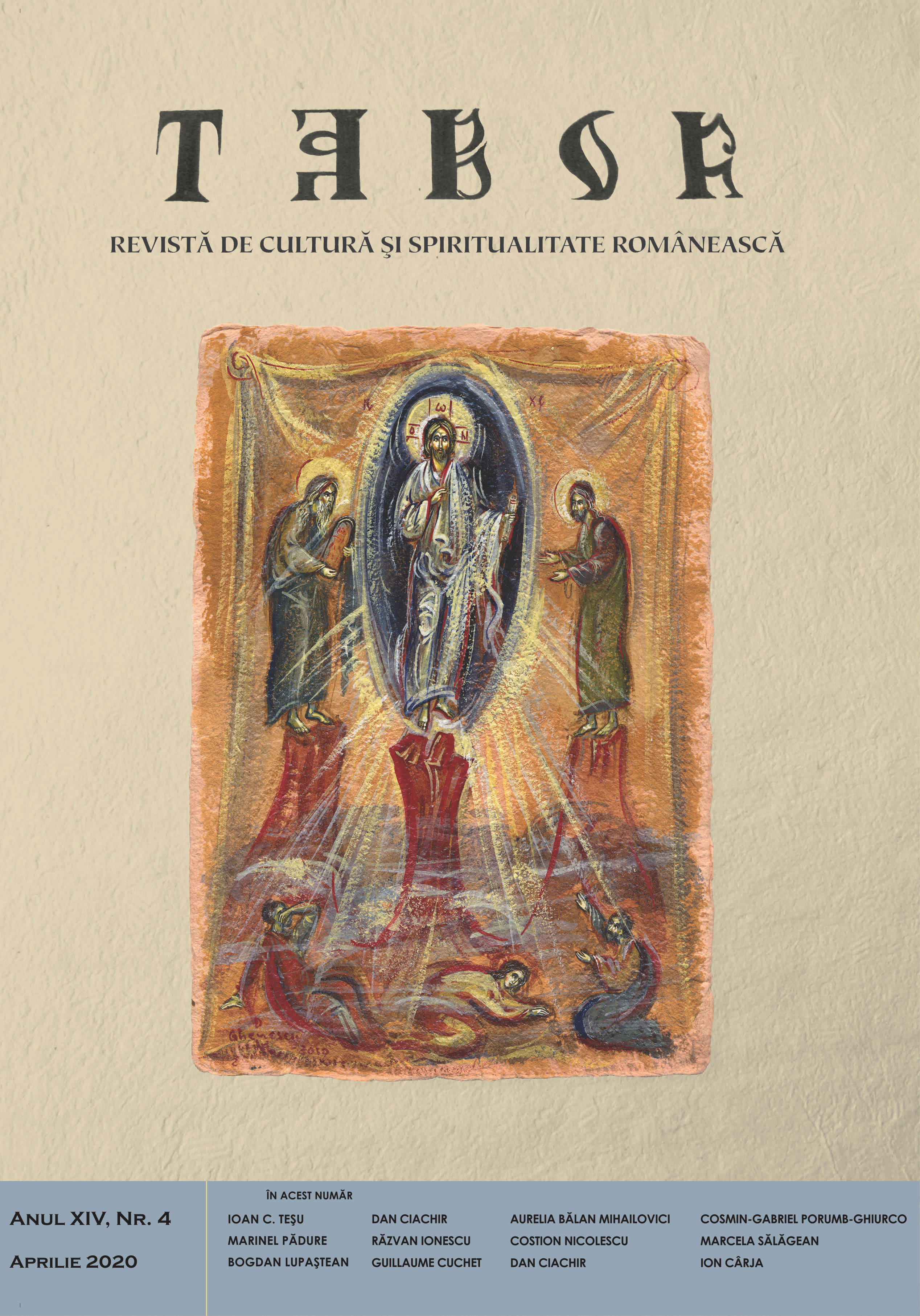
The diary pages contain snapshots of life from year 2004. It captures aspects of the Orthodox church life, evocations of places or Church people, as well as aspects of cultural life.
More...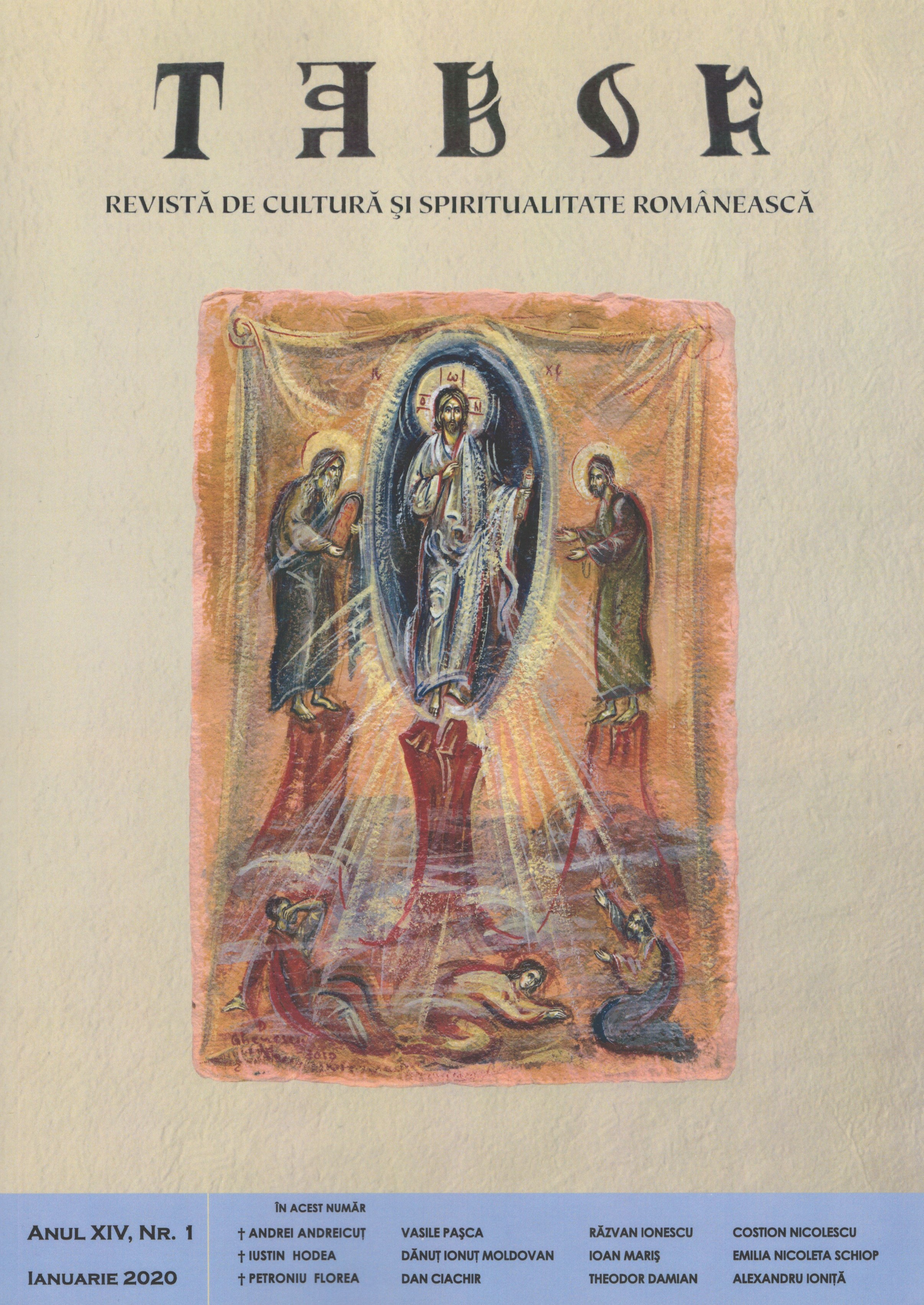
The world of theater and fi lm, but also the world of bohemia around it, have always been a never-ending source of funny happenings, acid replicas, ruthless spontaneities, more or less friendly jokes. The despising aseptics kept their distance, the scoundrels speculated its weaknesses, the loafers loved it unconditionally, the sycophants coveted it, the guild’s memory preserved it, sometimes passing it on to the next generations, even though the protagonists have already departed this life. Some of these events are recalled in the article.
More...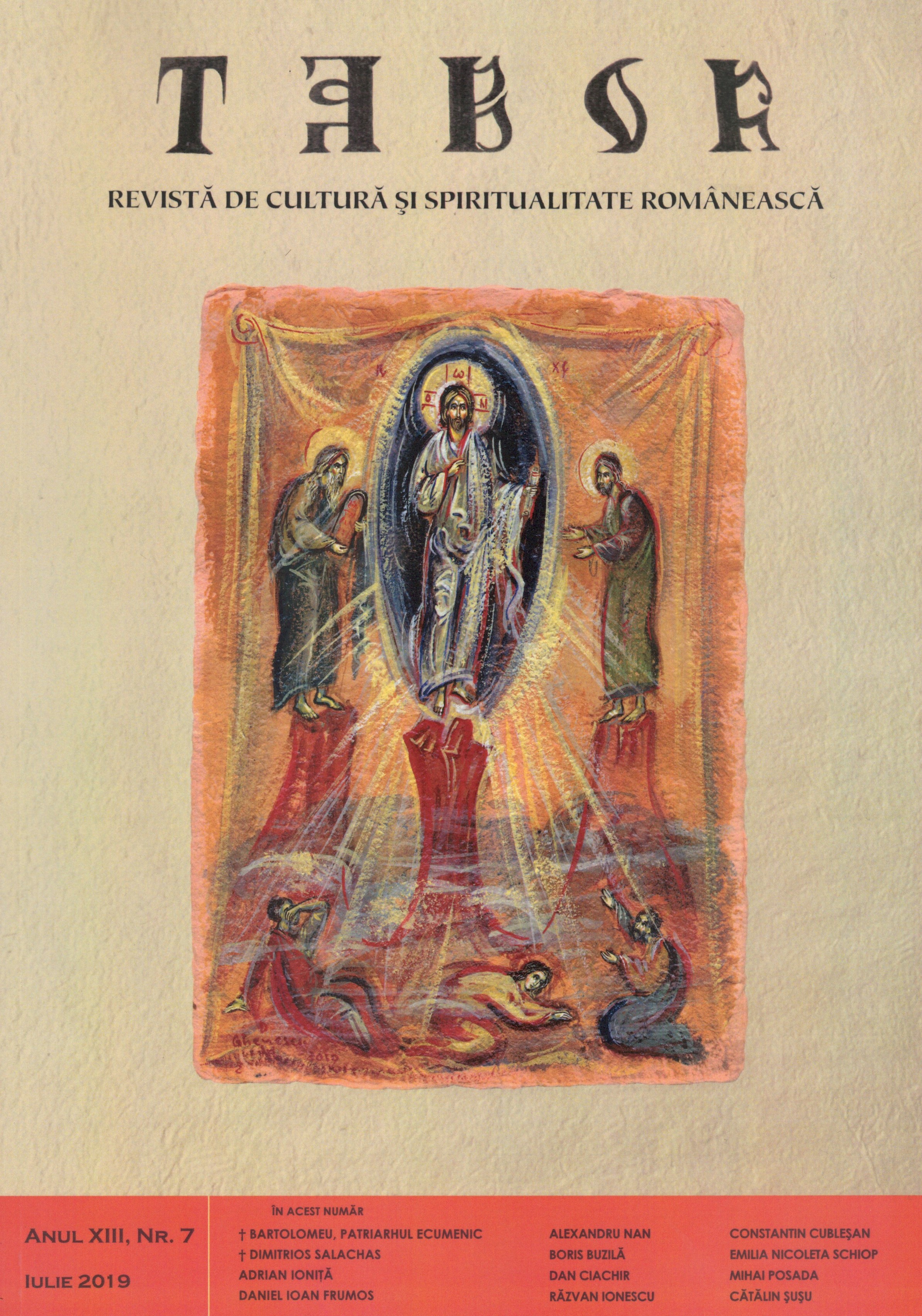
Starting from the book of a quasi-unknown author, Victor N. Popescu, “Tragedy of a Soul: Tudor Arghezi”, the author tries to capture aspects of Tudor Arghezi’s pamphlet writing, through which personalities and events within church are subjected to a critical eye.
More...
The author evokes memories from his childhood and youth, related to the Suzana monastery in Prahova County, memories that also have a cultural component. Literary publications from the communist era or writers of that time, as well as theology books published after 1989, are mentioned. All these memories revolve around Suzana monastery.
More...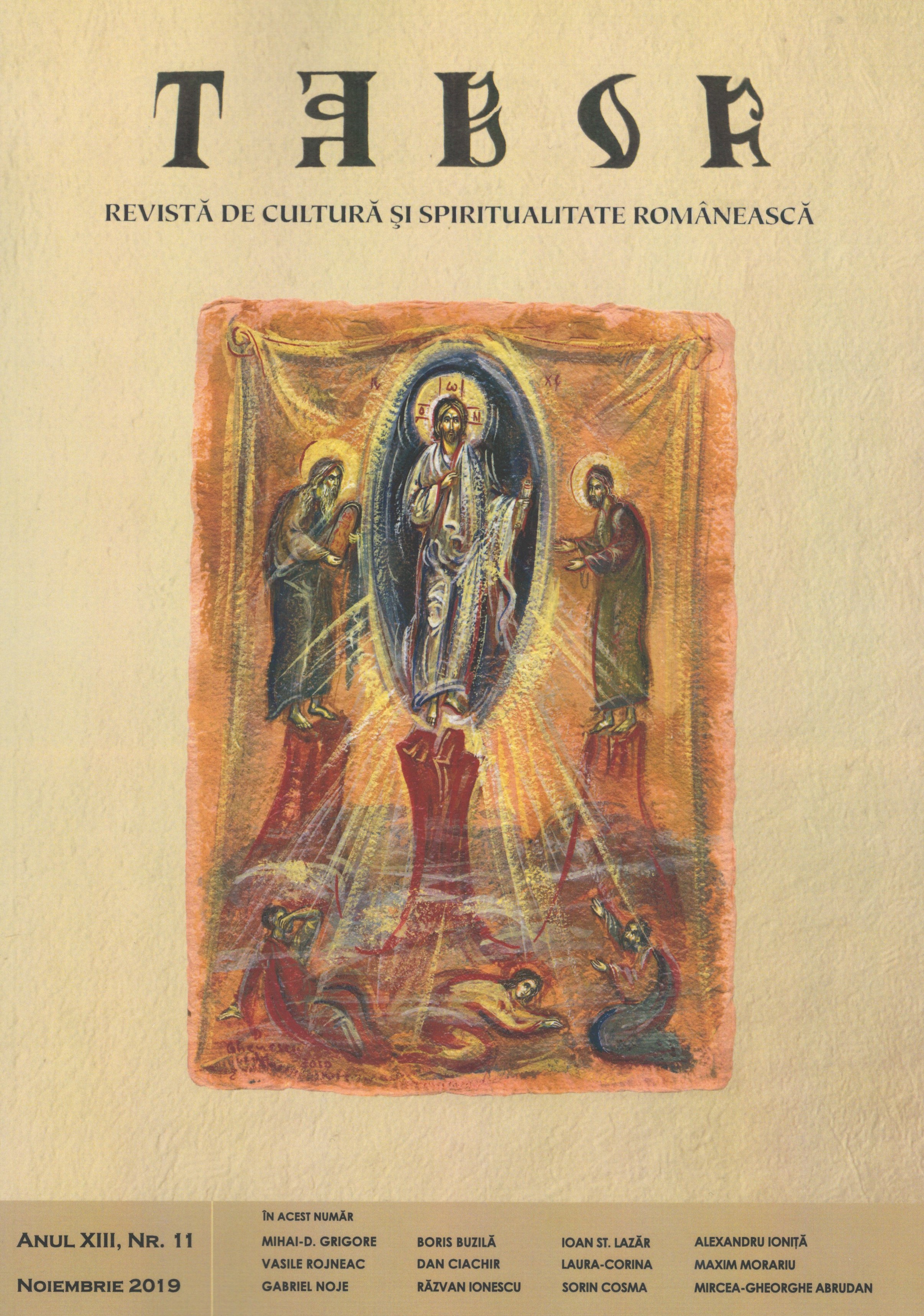
Years ago, the world of theatrical performances was composed of a few dozen people of all ages and social categories who filled the second plane of the stage, having behind them a plethora of unseen but professional craftsmen. All these people dedicated their lives to the theater and remained anonymous. People like them have held on their shoulders the mysterious life of the theaters, which remains mostly unknown to the public. This article is dedicated to them.
More...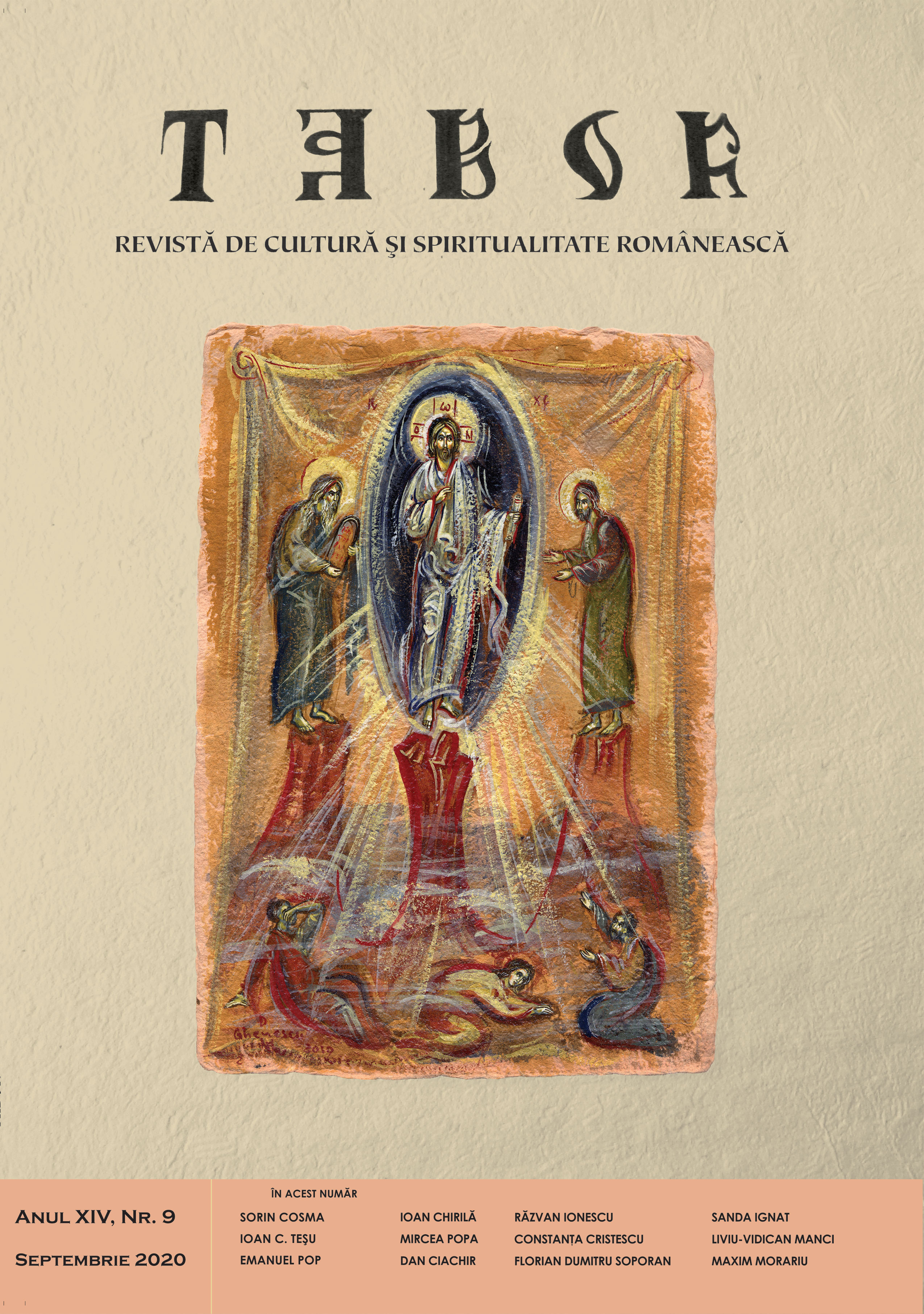
The author's diary pages contain notes from August and September 2007. The death of Patriarch Teoctist, the election of the new patriarch of Romania, a visit to Brussels and other moments spent in Bucharest or monasteries are captured by various notes. In the media roar generated by the death of Patriarch Teoctist, we can catch a glimpse at the author's connections with the Romanian press.
More...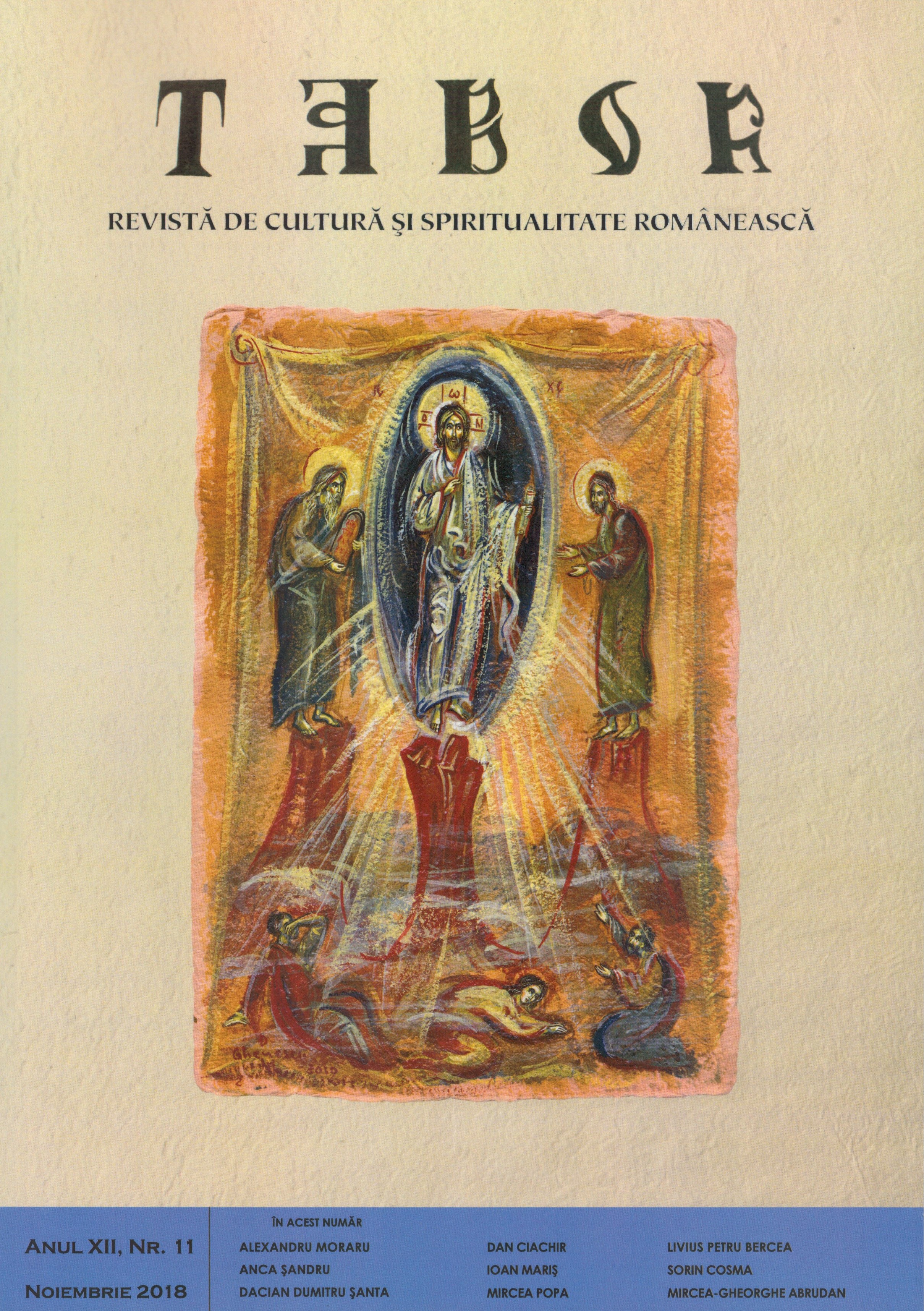
The article is a chronicle to the diary volume of Augustin Cozmuța, the 70th Year of my life. The diary of the late journalist and literary critic Augustin Cozmuta, posthumously edited by his wife, is revealed to us as a creation with an ideational substance consumed under the imperative of the irreversible passage of time. A painful trauma transpires from the journal as a result of a surgical operation that will mark the author in the last period of his life. This disease, which almost imminently leads to the passage from this world to the eternal one, makes the author lean almost exclusively upon his soul and his struggles.
More...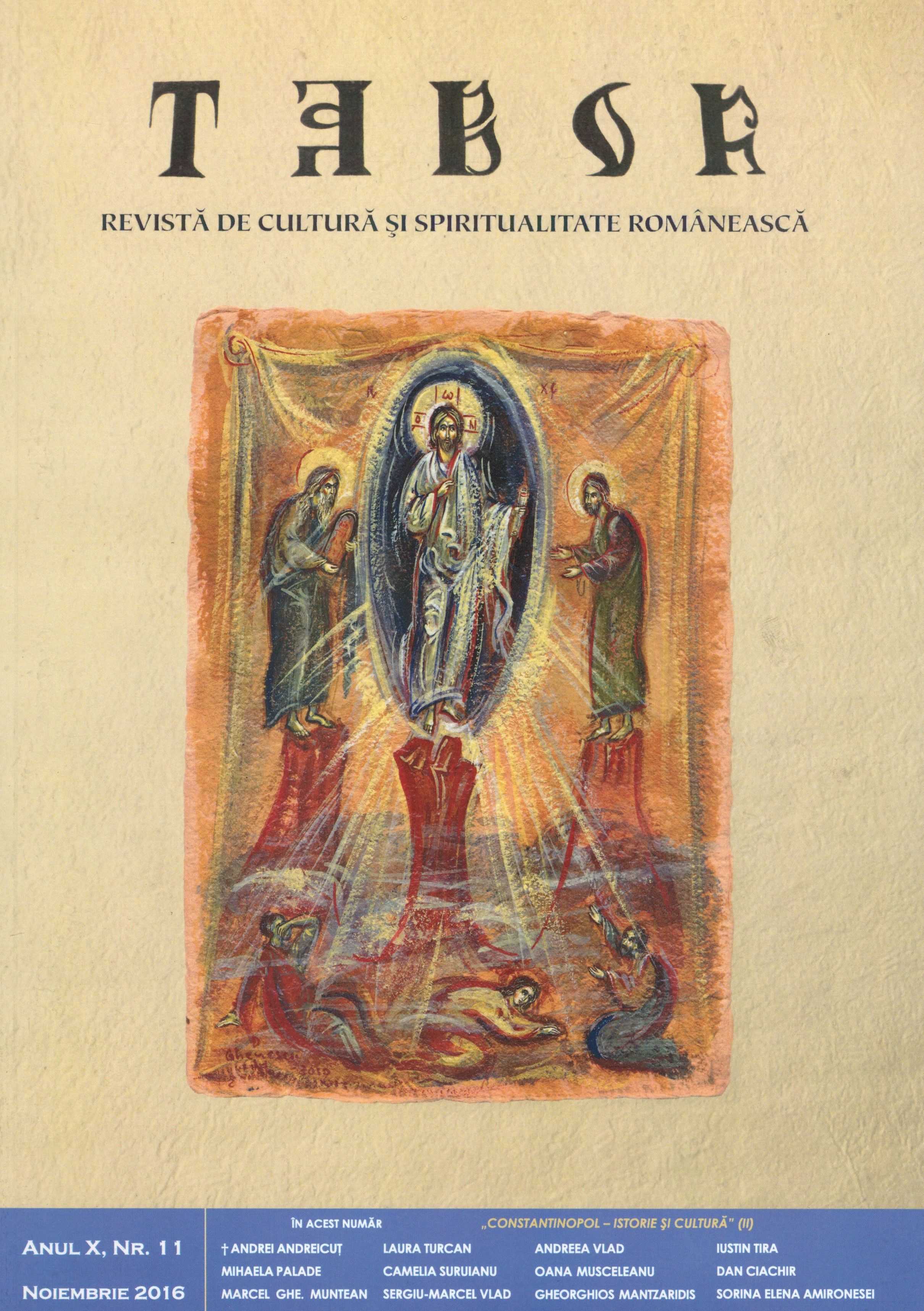
This text represents several pages from a diary written by the author during her studies in Istanbul. She notes aspects of the everyday life of the city and reports information on touristic major objectives, the Romanian parish of this city, activities of Galatasaray University etc. Istanbul appears as an animated city, full of history and attractive to tourists.
More...